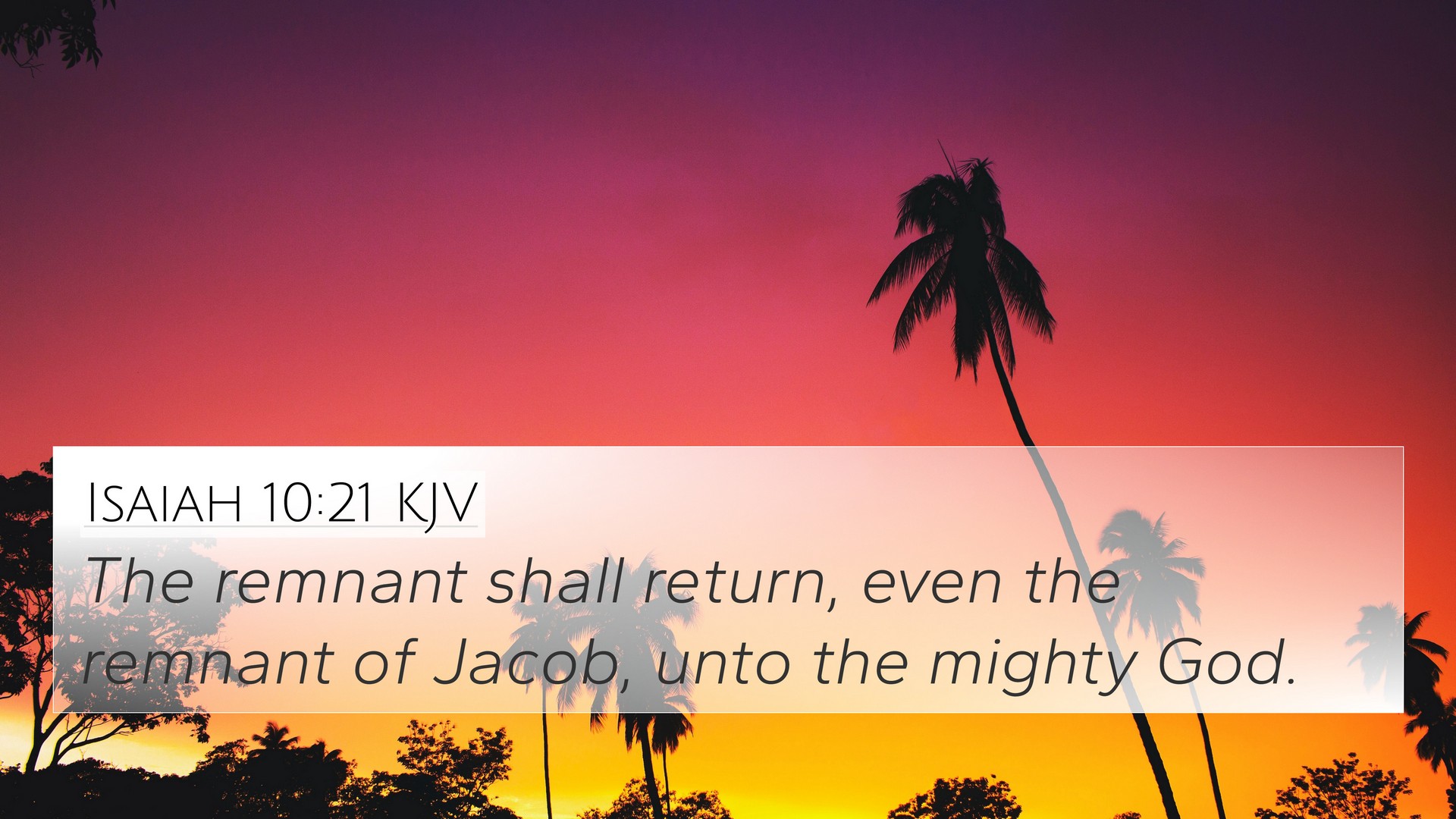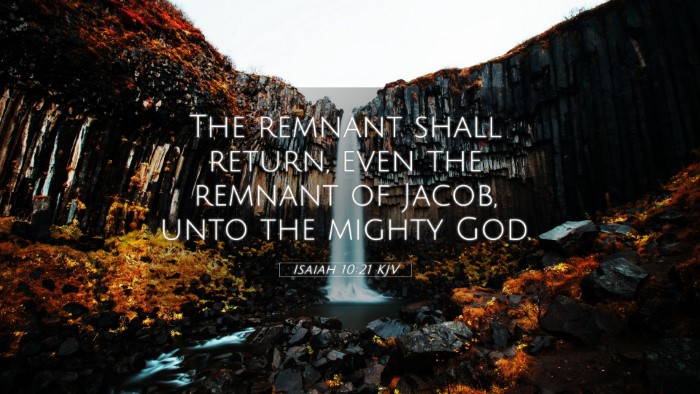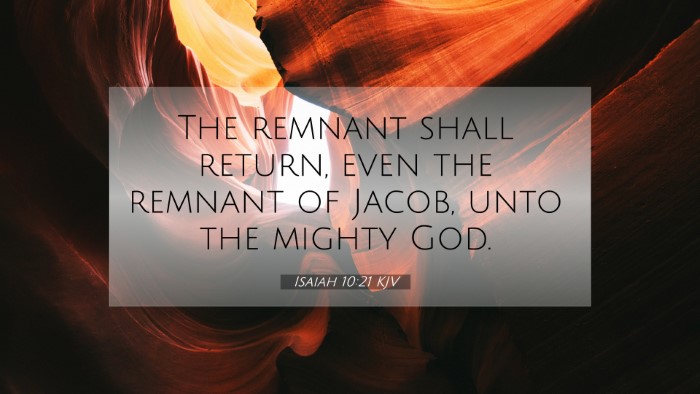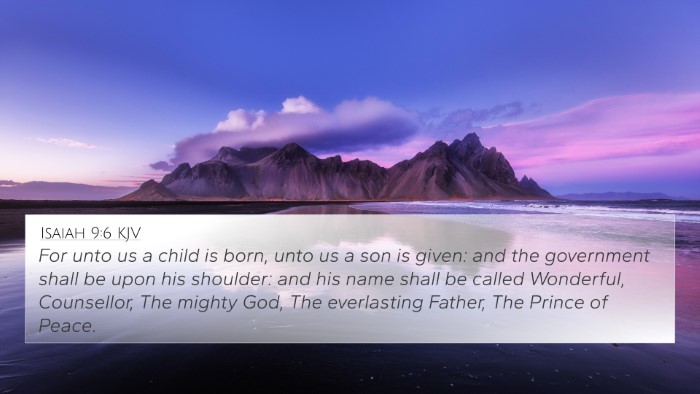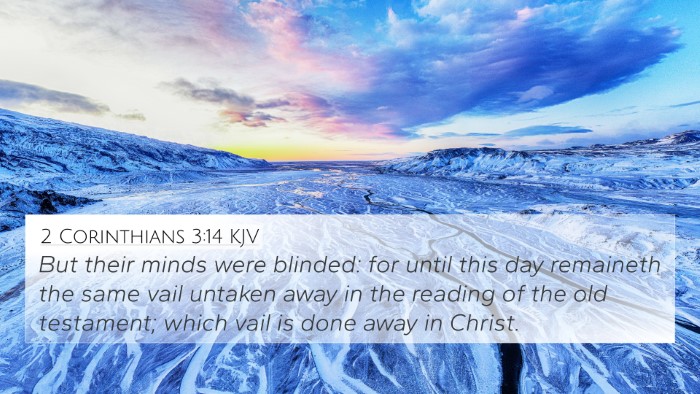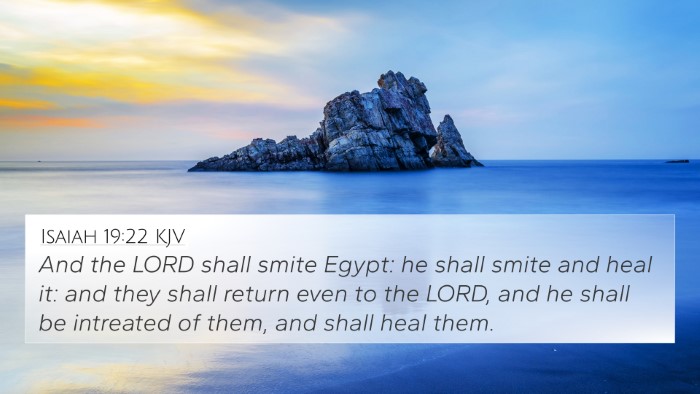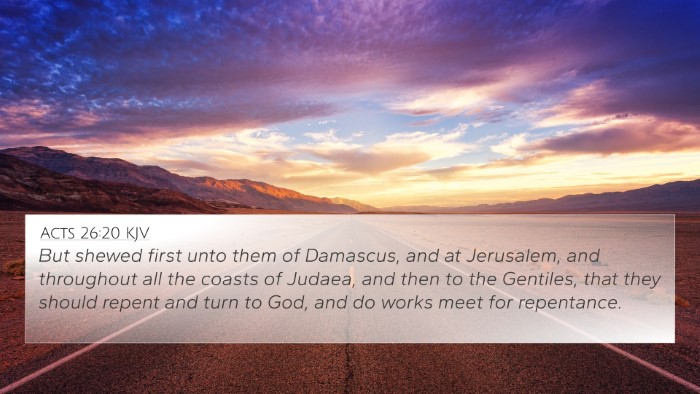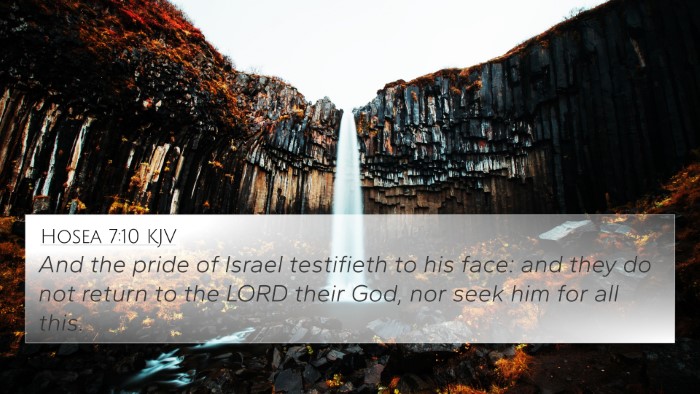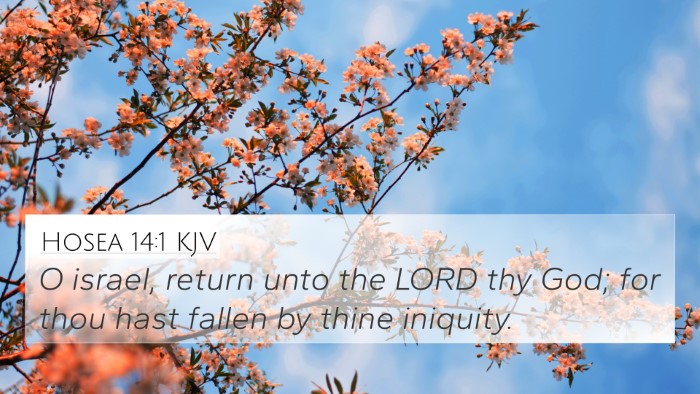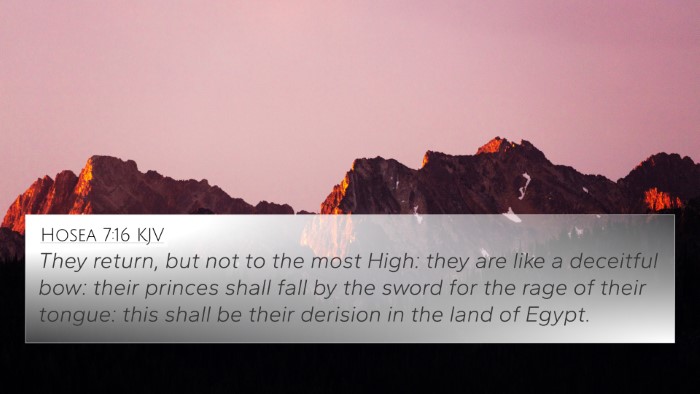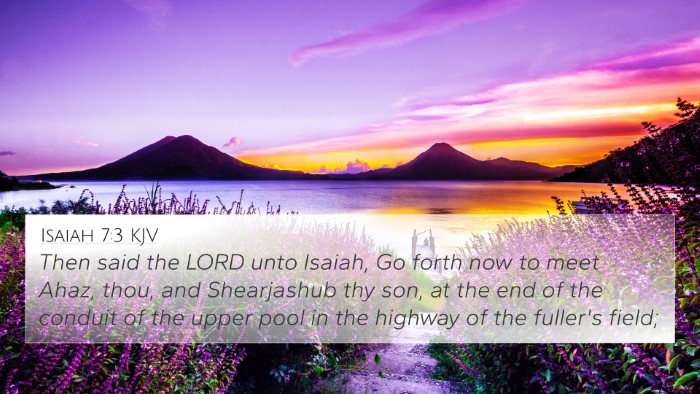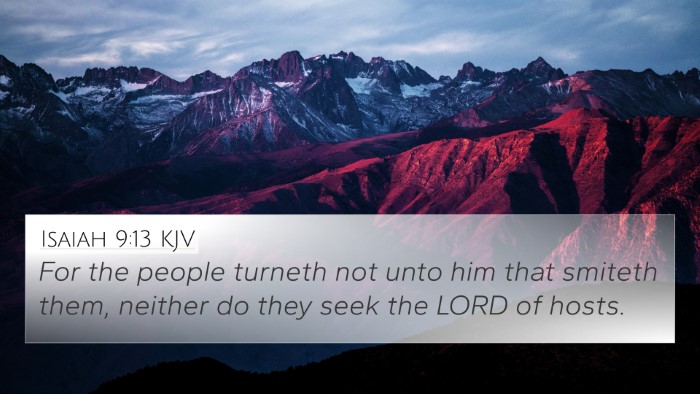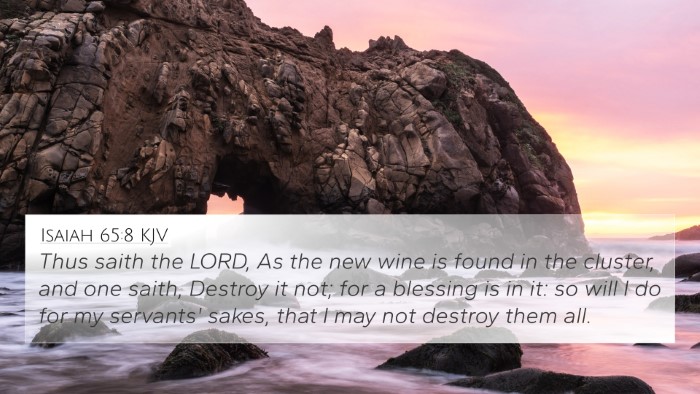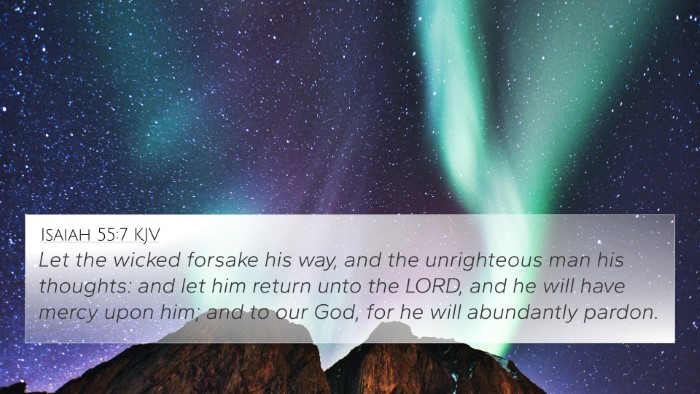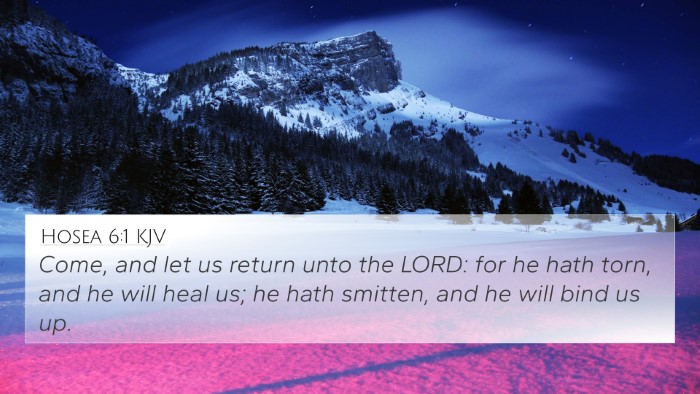Understanding Isaiah 10:21
Isaiah 10:21 states, "The remnant shall return, even the remnant of Jacob, unto the mighty God." This verse carries significant theological and prophetic meaning. Below, we will explore the insights gained from various public domain commentaries to clarify its meaning and connection to other Biblical texts.
Verse Meaning and Interpretation
The verse exemplifies the theme of God's mercy and the promise of restoration. Commentators like Matthew Henry, Albert Barnes, and Adam Clarke provide valuable insights into its implications:
- Matthew Henry: He emphasizes that despite the judgment and calamities faced by Israel, God's promise of a remnant reveals His faithfulness. The remnant indicates hope for the future and God's unyielding grace.
- Albert Barnes: Barnes connects this to the larger context of the Assyrian invasion. He explains that the term “remnant” signifies a small group that returns to God, highlighting the distinction between the unrepentant majority and the faithful few.
- Adam Clarke: Clarke elaborates on the "mighty God" title, relating it to God's omnipotence and ability to save and restore His people. He points out that this phrase invokes a deep sense of reverence and acknowledgment of God's power in their restoration.
Thematic Connections
This passage is deeply interwoven with themes found throughout the Bible. Here are some relevant connections that illustrate how Isaiah 10:21 relates to other Scripture:
- Isaiah 1:9: "Except the Lord of hosts had left unto us a very small remnant, we should have been as Sodom..." This verse parallels the notion of a remnant representing a saving grace amid judgment.
- Romans 9:27: "Isaiah also crieth concerning Israel, Though the number of the children of Israel be as the sand of the sea, a remnant shall be saved." Paul references Isaiah to illustrate the principle of divine selection and grace.
- Micah 2:12: "I will surely assemble, O Jacob, all of thee; I will surely gather the remnant of Israel..." Reinforcing the message of hope and restoration for a remnant of God's people.
- Zephaniah 3:12: "I will also leave in the midst of thee an afflicted and poor people, and they shall trust in the name of the Lord." This emphasizes the humility of God's remnant.
- Revelation 12:17: "And the dragon was wroth with the woman, and went to make war with the remnant of her seed, which keep the commandments of God, and have the testimony of Jesus Christ." Linking the Old Testament remnant with God's people in the New Testament.
- Hebrews 11:6: "But without faith, it is impossible to please him: for he that cometh to God must believe that he is, and that he is a rewarder of them that diligently seek him." Expressing the need for faith in God, who restores and preserves the remnant.
- 1 Peter 2:9: “But ye are a chosen generation, a royal priesthood, an holy nation, a peculiar people...” This verse echoes the identity of the remnant in Christ and their purpose.
Tools for Understanding
To comprehensively study and explore these connections, employing tools for Bible cross-referencing can enhance our understanding:
- Bible Concordance: A tool to locate specific words or topics across various verses.
- Bible Cross-Reference Guide: Helps in systematically identifying related verses and themes.
- Cross-Reference Bible Study: A method to examine various passages that shed light on a particular verse.
- Bible Chain References: A system for tracing links between verses sequentially.
Conclusion
The study of Isaiah 10:21 serves to illuminate the nature of God's deliverance and the significance of the remnant. As we engage with this verse and its web of connections, we find a profound narrative of hope and divine sovereignty.
